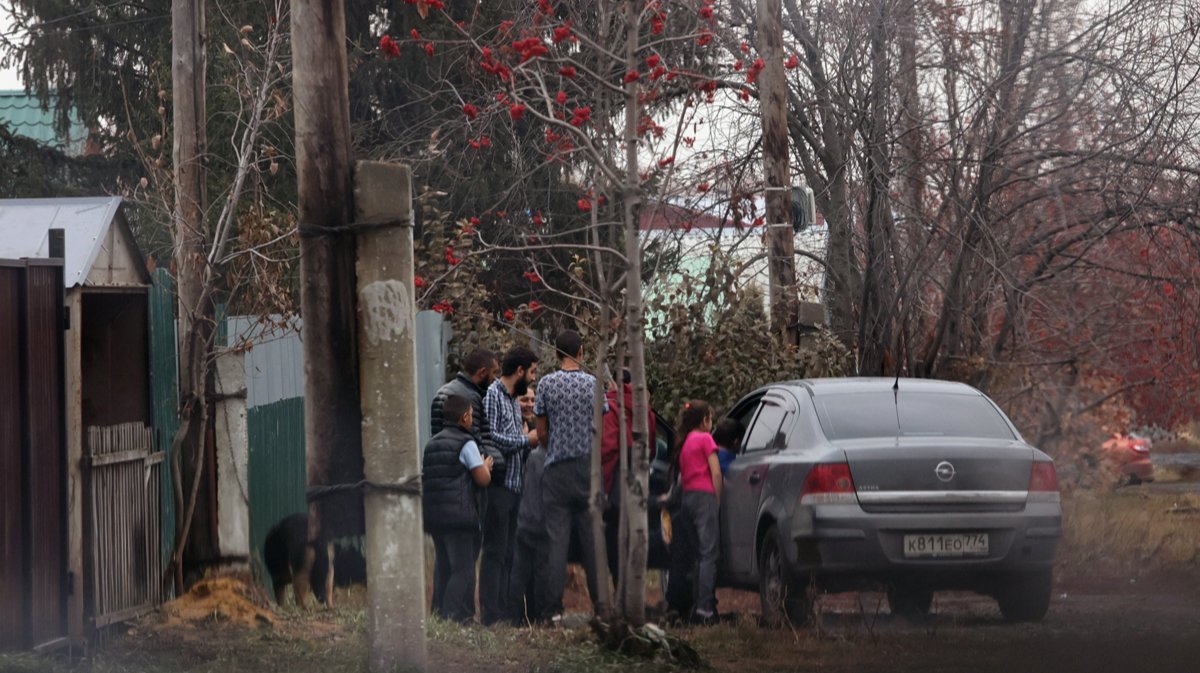Long before he plunged Russia into its most significant political crisis in three decades, Yevgeny Prigozhin, the Kremlin caterer turned mercenary warlord and then mutineer, had built a profitable empire interfering in the politics and crises of countries around the world.
Prigozhin’s sprawling businesses include not only the Wagner mercenary group that became a household name when it joined Russian forces in Ukraine — before launching an armed insurrection against Moscow last week — but also an online army that has fought wars over information from Sudan to the United States, where Prigozhin remains under federal indictment over his alleged interference in the 2016 presidential election.
“The misinformation piece is a huge part of the narrative,” Raphael Parens, a fellow in the Foreign Policy Research Institute’s Eurasia Program who has long researched Prigozhin and Wagner, told The Intercept. He added that influencing public discourse is one of Wagner’s “top tools.”
Prigozhin’s brief rebellion and ongoing rhetoric against the government of his once close associate Vladimir Putin played out online as much as on the ground, as he successfully utilized the messaging service Telegram to communicate with the public. Social media’s prominent role in the rebellion echoed Prigozhin’s earlier online battles, where he often seized on a vacuum of reliable information to seek to control the narrative or actively worked to sow doubt and chaos around what was happening.
Over the weekend, as the world’s intelligence agencies and pundit classes scrambled to analyze rapidly shifting developments, Prigozhin himself was often the source of the little information around the attempted coup, which he said was not a coup but a “march for justice.”
Prigozhin launched his short-lived insurrection against the Russian government in a series of social media posts on Friday, in which he accused Russian Defense Minister Sergei Shoigu of ordering deadly airstrikes on Wagner mercenaries. (Some analysts concluded that the video he posted purportedly showing evidence of such an attack was likely staged.) He also challenged Putin’s official narrative for launching a full-scale invasion of Ukraine last year — a significant act of defiance in a conflict Prigozhin and his forces have actively participated in.
Prigozhin’s brief rebellion and ongoing rhetoric against the Putin government played out online as much as on the ground.“There was nothing extraordinary happening on the eve of February 24,” Prigozhin said in a Telegram video on Friday. “The Ministry of Defense is trying to deceive the public and the president and spin the story that there was insane levels of aggression from the Ukrainian side and that they were going to attack us together with the whole NATO block.”
For the next 36 hours, Prigozhin kept posting online. Telegram channels that often share Wagner-related content circulated videos of Wagner men who had seized control of the southern Russian city of Rostov-on-Don, a key military hub near the Ukrainian border. On Saturday, Prigozhin turned his men around 120 miles outside Moscow after reaching a deal with Putin brokered by Belarus’s President Alexander Lukashenko.
For an episode with the potential for monumental global repercussions, accurate, reliable information remained wildly elusive even days after Prigozhin’s forces retreated. That is in part due to the Russian government’s tight control of the media, with independent outlets forced to shut down or move abroad since last year’s invasion and foreign media still in the country operating in extremely difficult circumstances. Within hours of the uprising starting, Russian internet service providers began to block access to Google News, while observers outside Russia rushed to verify whether reports and videos emerging on social media were real.
Eventually, Russian officials spoke publicly, with Putin addressing the nation on Saturday and then again on Monday. But by that point, Prigozhin’s message had already spread through Russia, where people are increasingly turning to Telegram for alternative — if hardly more reliable — information than that coming from official state sources.
“He kind of hit this media space that has eroded in the last 10, 15 years,” said Parens, referring to a Russian media landscape that has shrunk under Putin’s rule, but also to a phenomenon — the rise of disinformation — hardly unique to Russia. “He and the organization managed to hit a gap in Russian society, and you could also say a gap in Western society and the way that we are able to deal with misinformation.”
Criminal to Chef, Warlord to Mutineer
Born in 1961 in Leningrad — today’s St. Petersburg — Prigozhin was once sentenced to 13 years in a penal colony following a conviction on charges ranging from armed robbery to fraud to “involving minors in criminal activity,” according to a leaked resume published by The Intercept earlier this year. Once released, he launched a fast-food chain that soon boomed into a sprawling catering business serving the Kremlin, which earned Prigozhin the nickname “Putin’s chef” and brought him face to face with dozens of heads of state.
As he grew closer to Putin following his 2012 reelection to the presidency, Prigozhin expanded his relationship with the Kremlin by financing the Internet Research Agency, a “troll farm” behind a series of online disinformation campaigns, including a bid to influence the 2016 U.S. election. And he built Wagner — a successor of the Slavonic Corps, a paramilitary group involved in the 2014 Russian invasion of Ukraine — into an infamous and brutal mercenary force that has been accused of widespread atrocities across multiple continents.
Until last year, Prigozhin denied any involvement in the more shadowy businesses he is today most known for, fiercely fighting U.S. and European Union sanctions against him and suing journalists who reported on his connections to Wagner. But he abruptly switched course last year, as the war in Ukraine raised his global profile and that of his mercenaries. Since then, he has embarked on an intensive media offensive: appearing in videos that showed him recruiting prisoners in Russian prisons, on the battlefield in Ukraine, and alongside dozens of corpses of Wagner fighters whose deaths he blamed on the incompetence of Russian military leadership.
The social media blitz around the weekend insurrection was a culmination of Prigozhin’s monthslong campaign to dominate the narrative about Wagner and its role in Ukraine. As his name became as recognizable as Putin’s over the last year, leading to speculation that he might be angling to replace him, Prigozhin issued dozens of often bombastic statements to journalists — including to The Intercept — through the PR arm of his catering business, while also increasingly turning to Telegram to launch screeds against his rivals in Russia and finally, to chronicle his rebellion against them in real time.
“He likes to be in the limelight. It does feel like he’s playing into the whole theater of the moment.”“He’s certainly one of the people who is more plugged in than others with the Russian government and who has recognized the use of Telegram and social media and that actually uses that to get what he wants,” John Lechner, an independent researcher and author of an upcoming book about the Wagner Group, told The Intercept. “Prigozhin has been at the forefront of really effectively using Telegram and social media to advocate for his own objectives vis-à-vis other rivals in the Russian government who either don’t have the permission or the ability to pull that off.”
Prigozhin’s online persona — and his skill at commandeering attention to himself by frequently issuing over-the-top statements — is also a product of the time.
“He likes to be in the limelight,” said Parens. “It does feel like he’s playing into the whole theater of the moment. In order to get the attention, and in order to get retweets are reposting and all that, you have to kind of go to the extreme. It’s the social media effect of — the way the military and political spheres look to the public now is just completely different than the way it looked maybe 10 years ago; there’s just this need to dramatize things to show your point of view.”
Prigozhin’s Playbook
Prigozhin’s mastery of social media to serve his business and political goals goes at least as far back as the 2016 U.S. presidential election. A U.S. federal grand jury indicted him in 2018 in one of the highest-profile prosecutions to emerge from the two-year Mueller investigation. Prigozhin was accused of “conspiracy to defraud the United States” along with 12 other individuals, two companies he controls, and the Internet Research Agency. At a press conference announcing the charges, Deputy Attorney General Rod Rosenstein accused Prigozhin and his co-defendants of seeking to spread “distrust towards the candidates and the political system in general.”
Last year, Prigozhin boasted of having been involved in that interference. “We did it only because the U.S. boorishly interfered in Russian elections in 1996, 2000, 2008, and 2012,” Prigozhin wrote through a representative in an email to The Intercept. “50 young guys, whom I personally organized, kicked the entire American government in the ass. And we will continue to do so as many times as needed.” The charges against him remain active, though prosecutors dropped the charges against his companies in 2020.
In several African countries, too, where Wagner has worked with local governments to quash rebellions or political rivalries —committing widespread human rights abuses in the process — it has also engaged in information warfare. In Mali and the Central African Republic, Wagner has promoted social media pages as well as local radio stations advancing its clients’ interests, for instance by amplifying rhetoric against the French and United Nations presence in those countries. “They’re very media savvy,” said Lechner, noting that those efforts vary from country to country. “They’re turning out these narratives that are specifically crafted to the local environment.”
At times, Wagner’s media campaigns seemed aimed at bolstering its business, creating an opportunity for a formal relationship with various governments. In Mali, for instance, the Foundation for National Values Protection, a Russian think tank under U.S. sanctions over its role disseminating disinformation, released an opinion poll just before Wagner finalized a deal with the Malian government claiming to show widespread popular support among Malians for such an involvement. The think tank, headed by Maxim Shugaley, a close associate of Prigozhin, had run and promoted similar polls in the Central African Republic.
In Burkina Faso last year, hours after a military coup, crowds cheering the takeover waved Russian flags. Months later, Wagner forces were reported to be supporting the military junta in the country. (This year, Burkina Faso’s government denied contracting with Wagner, but said it would work with “Russian instructors” to train soldiers using equipment purchased from Russia, a phrase often used by Russian officials themselves to obliquely refer to the mercenaries). In Sudan, before the ousting of former President Omar al-Bashir, Wagner, which had business dealings in the country’s mining industry, was also involved in disinformation campaigns against regime rivals.
“They’re definitely experimenting with disinformation in these different contexts,” Parens said, “and trying to figure out how to influence populations.”
The post Prigozhin Mastered Information War Tactics in 2016 U.S. Election Before His Mutiny Against Putin appeared first on The Intercept.

 1 year ago
67
1 year ago
67




